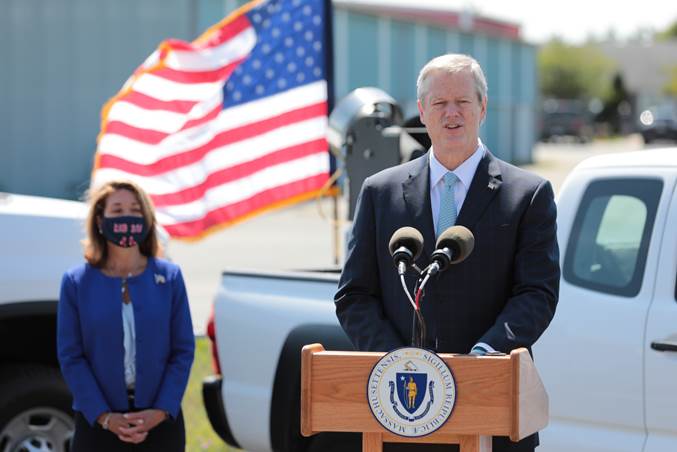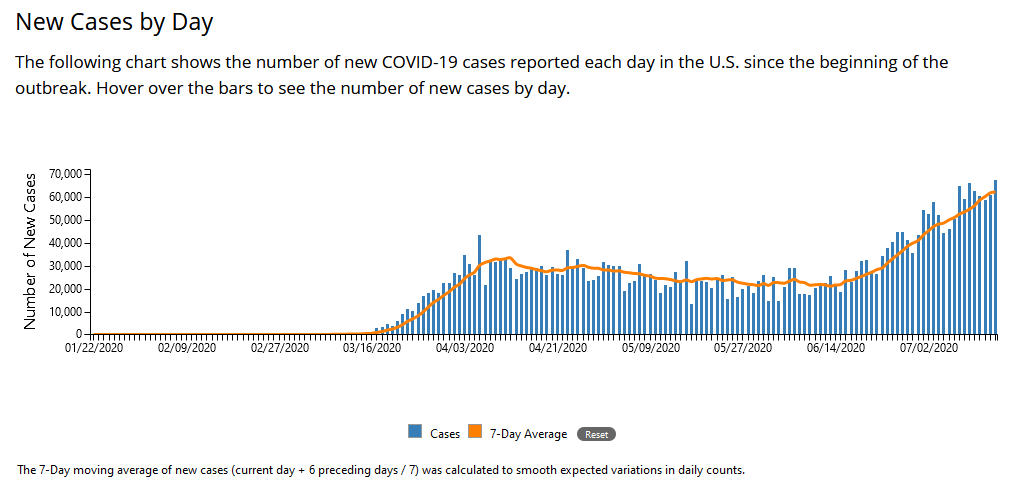Community
Massachusetts COVID-19 hospitalizations drop as Baker announces more emergency funding

Massachusetts saw a decrease in hospitalizations in Thursday’s COVID-19 report.
Massachusetts has seen 143 more positive cases announced in the last 24 hours. A slight increase from the previous 24 hour period.
The Massachusetts Department of Health statistics show a rise in total cases to 106,271 with 11 more reported dead for a total of 8,163.
Massachusetts had seen 142 more positive cases in the previous 24 hour period.
12,880 tests were performed, over 2,400 more than yesterday, to increase the overall total to 1,274,585. The amount of individuals tested is 995,374.
Hospitalizations have decreased in 56 of the last 67 days and dropped below 560.
Dashboard of Public Health Indicators
Nursing home cases and cases by City and Town as of July 15th.
Massachusetts Department of Public Health COVID-19 Dashboard -Wednesday, July 15
Massachusetts residents subject to COVID-19 quarantine by current status up to July 15th
• Total of individuals subject to quarantine: 71,059
• Total of individuals who have completed monitoring (no longer in quarantine): 69,227
• Total of individuals currently undergoing monitoring/under quarantine: 1,832
According to the CDC, as of July 16th, the total amount of cases in the country is 3,483,832 with 136,938 dead.

Courtesy of the CDC
In related news, today, the Baker-Polito Administration announced $19.6 million for municipalities to address emergency needs in light of the Coronavirus pandemic. This funding will support 181 communities in their work to provide vital services to low-income residents and small businesses affected by the recent outbreak.
Local governments and regional consortiums will fund social services, including homelessness prevention, food pantries and assistance, and job training for in-demand health care workers and technicians. Many communities will also make grants available for local small businesses with five or less employees. 36 lead awardees will organize within their respective municipality or region to deliver services.
The Department of Housing and Community Development (DHCD) made this $19.6 million award through the federally-funded Community Development Block Grant (CDBG) program. Congress allocated new emergency funding for the program through the Coronavirus Aid, Relief, and Economic Security Act – the CARES Act – to address substantial needs in low and moderate-income communities affected by the pandemic. DHCD has received $46 million in special CDBG funds so far, and is distributing funding across municipalities and stakeholders to meet increased needs, with a focus on helping households maintain housing stability.
In June, the Baker-Polito Administration announced a $20 million Emergency Rental and Mortgage Assistance program, which is also funded in part through this federal allocation. This new fund will help more low-income households who have lost employment or income due to the pandemic maintain stable housing, and builds on DHCD’s existing homelessness prevention program, RAFT. In March, Governor Baker announced a $5 million infusion for the fund to address increased need.
DHCD has received more than $160 million in federal funding through the CARES Act, including more than $20 million that has been distributed to Community Action Agencies for anti-poverty work, and is preparing to allocate additional funding for shelter providers. DHCD continues to be in close contact with the stakeholder network, and is working with CHAPA and Mass Housing Partnership to track local emergency rental assistance programs and other resources available to those affected by the COVID-19 pandemic.
This month, the Baker-Polito Administration unveiled a COVID-19 economic recovery package to respond to challenges brought on by the COVID-19 pandemic. The $275 million package, designed to promote equity across the Commonwealth, includes $85 million for housing efforts, including investments in neighborhood stabilization and sustainable, climate resilient affordable housing, as well as $50 million in targeted relief for small and minority-owned businesses.
-

 Community7 years ago
Community7 years agoNational Shrine of La Salette Festival of Lights 2017 set to begin
-

 Community6 years ago
Community6 years agoMassachusetts State Police looking for good home for retired dogs
-

 Crime6 years ago
Crime6 years agoFall River ranked most dangerous city in Massachusetts according to report
-

 latest7 years ago
latest7 years agoDurfee student allegedly overdoses on marijuana
-

 Community6 years ago
Community6 years agoVideo of Fall River Police goes viral
-

 Causes6 years ago
Causes6 years agoMissing Fall River woman found deceased
-

 Crime6 years ago
Crime6 years agoFall River Police add names to most wanted list
-

 Causes6 years ago
Causes6 years agoFall River teenager reported missing has been found




